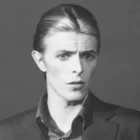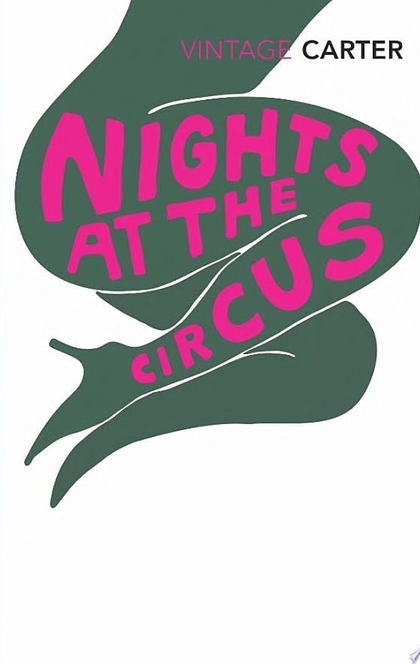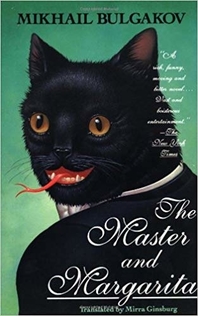
El maestro y Margarita
Moscow, 1929: a city that has lost its way amid corruption and fear, inhabited by people who have abandoned their morals and forsaken spirituality. But when a mysterious stranger arrives in town with a bizarre entourage that includes a giant talking cat and a fanged assassin, all hell breaks loose. Among those caught up in the strange and inexplicable events that transpire in the capital are the Master, a writer whose life has been destroyed by Soviet repression, and his beloved Margarita. Their adventures reveal a story that began two thousand years ago in ancient Jerusalem -- and its resolution will decide their fate. Translated by Michael Karpelson.
Ver todos
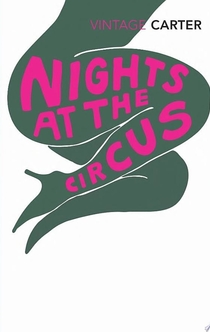
Noches en el circo
WITH AN INTRODUCTION BY SARAH WATERSIs Sophie Fevvers, toast of Europe's capitals, part swan...or all fake?Courted by the Prince of Wales and painted by Toulouse-Lautrec, she is an aerialiste extraordinaire and star of Colonel Kearney's circus. She is also part woman, part swan. Jack Walser, an American journalist, is on a quest to discover the truth behind her identity. Dazzled by his love for her, and desperate for the scoop of a lifetime, Walser has no choice but to join the circus on its magical tour through turn-of-the-nineteenth-century London, St Petersburg and Siberia.
Ver todos

Los trazos de la canción
Bruce Chatwin provides a fascinating background to indigenous Australian life.The songlines are the invisible pathways that criss-cross Australia, tracks connecting communities and following ancient boundaries. Along these lines, Aboriginals passed the songs which revealed the creation of the land and the secrets of its past. In this magical account, Chatwin recalls his travels across the length and breadth of Australia seeking to find the truth about the songs and unravel the mysteries of their stories.
Ver todos
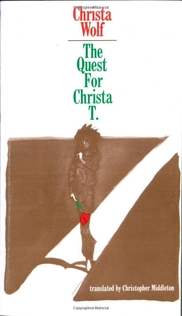
Reflexiones sobre Christa T.
When The Quest for Christa T. was first published in East Germany ten years ago, there was an immediate storm: bookshops in East Berlin were given instructions to sell it only to well-known customers professionally involved in literary matters; at the annual meeting of East German Writers Conference, Mrs Wolf's new book was condemmed. Yet the novel has nothing eplicity to do with politics.
Ver todos

Los hijos de la primavera
"[T]his delightful roman à clef about the Harlem Renaissance reflects . . . many of the competing notions of its time — between the masses and individuality, between art and uplift, between civilization and primitivism, between separatism and assimilation." — Kirkus ReviewsThis minor classic of the Harlem Renaissance centers on the larger-than-life inhabitants of "Niggerati Manor," an apartment building modeled on the rooming house where the author once lived among other celebrated black artists and writers. Enlivened by characters based on Langston Hughes, Zora Neale Hurston, and Alain Locke, Wallace Thurman's rollicking novel satirizes the cultural confusion surrounding a golden age of African-American art and literature.Infants of the Spring was originally published in 1932 — shortly after the author's ground-breaking novel on interracial prejudice, The Blacker the Berry, and two years before his untimely death. Thurman's elegant prose and witty characterizations offer revealing insights into conflicts within the African-American artistic community as well as the struggle to maintain artistic integrity.
Ver todos
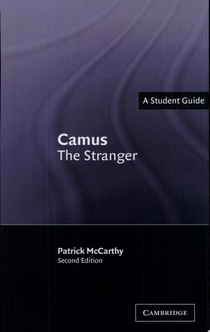
"El extranjero" de Albert Camus
This handy guide places The Stranger, one of the seminal texts of existentialism and twentieth-century literature in general, in the context of French and French-Algerian history and culture. Patrick McCarthy examines the way the work undermines traditional concepts of fiction. In addition, he explores the parallels and the contrasts between Camus's work and that of Jean-Paul Sartre. Overall, this account provides students with a useful companion to The Stranger. This second edition boasts a revised guide to further reading and a new chapter on Camus and the Algerian War.
Ver todos

El yo dividido
The Divided Self, R.D. Laing's groundbreaking exploration of the nature of madness, illuminated the nature of mental illness and made the mysteries of the mind comprehensible to a wide audience. First published in 1960, this watershed work aimed to make madness comprehensible, and in doing so revolutionized the way we perceive mental illness. Using case studies of patients he had worked with, psychiatrist R. D. Laing argued that psychosis is not a medical condition, but an outcome of the 'divided self', or the tension between the two personas within us: one our authentic, private identity, and the other the false, 'sane' self that we present to the world. Laing's radical approach to insanity offered a rich existential analysis of personal alienation and made him a cult figure in the 1960s, yet his work was most significant for its humane attitude, which put the patient back at the centre of treatment.Includes an introduction by Professor Anthony S. David.'One of the twentieth century's most influential psychotherapists' Guardian'Laing challenged the psychiatric orthodoxy of his time ... an icon of the 1960s counter-culture' The Times
Ver todos
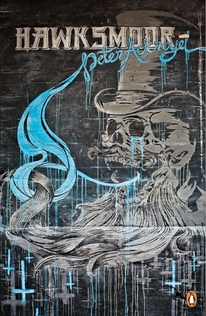
La sombra de Hawksmoor
'There is no Light without Darknesse and no Substance without Shaddowe.' So proclaims Nicholas Dyer, assistant to Sir Christopher Wren and man with a commission to build seven London churches to stand as beacons of the enlightenment. But Dyer plans to conceal a dark secret at the heart of each church - to create a forbidding architecture that will survive for eternity. Two hundred and fifty years later, London detective Nicholas Hawksmoor is investigating a series of gruesome murders on the sites of certain eighteenth-century churches - crimes that make no sense to the modern mind . . . Cover art by- Barn'whether the book addresses graffiti explicitly, evoke a city from the past, or are considered cult classics, the novels all share the quality - like street art - of speaking to their time.' Guardian Gallery
Ver todos
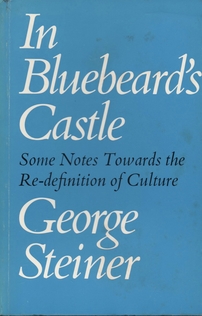
En el castillo de Barba Azul: aproximación a un nuevo concepto de cultura
"Four impressive lectures about the culture of recent times (from the French Revolution) and the conceivable culture of times to come. Mr. Steiner's discussion of the break with the traditional literary past (Jewish, Christian, Greek, and Latin) is illuminating and attractively undogmatic. He writes as a man sharing ideas, and his original notions, though scarcely cheerful, have the bracing effect that first-rate thinking always has." -New Yorker "In Bluebeard's Castle is a brief and brilliant book. An intellectual tour de force, it is also a book that should generate a profound excitement and promote a profound unease...like the great culturalists of the past. Steiner uses a dense and plural learning to assess his topic: his book has the outstanding quality of being not simply a reflection on culture, but an embodiment of certain contemporary resources within it. The result is one of the most important books I have read for a very long time."--New Society
Ver todos
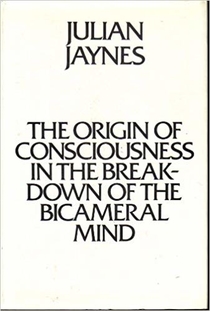
El origen de la conciencia en la ruptura de la mente bicameral
At the heart of this classic, seminal book is Julian Jaynes's still-controversial thesis that human consciousness did not begin far back in animal evolution but instead is a learned process that came about only three thousand years ago and is still developing. The implications of this revolutionary scientific paradigm extend into virtually every aspect of our psychology, our history and culture, our religion -- and indeed our future.
Ver todos
